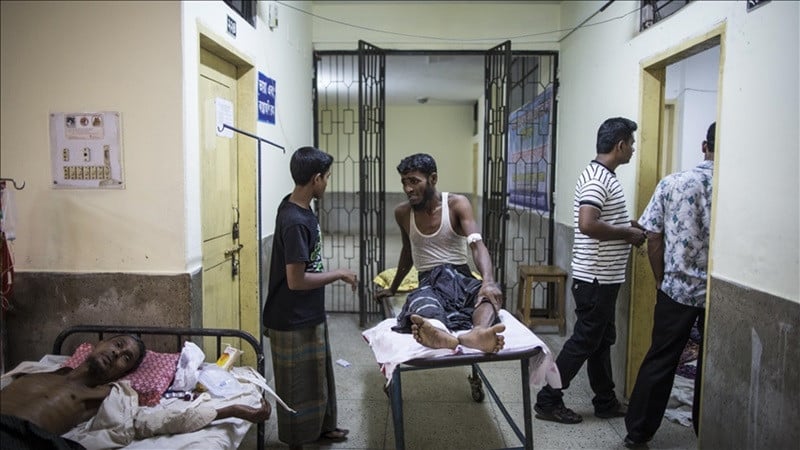DM Monitoring
DHAKA: Strike by doctors in Bangladesh shuts down healthcare
The strike was triggered by an incident on Saturday night at Dhaka Medical College Hospital (DMCH), the largest healthcare facility in Bangladesh, where the emergency department was vandalised by relatives and friends of a student protester who had been injured during recent demonstrations that led to the ousting of the Hasina regime. The injured student later succumbed to his injuries, with some of his peers accusing the attending physicians of neglect.
In response to the attack and to demand justice and improved safety measures, doctors at DMCH suspended emergency medical services Sunday morning. Attempts by hospital authorities to negotiate with the doctors were unsuccessful, leading to the escalation of the protest into a nationwide strike. On Sunday afternoon, Dr Abdul Ahad from DMCH’s Neurosurgery Ward announced the strike, outlining four key demands: the arrest of those responsible for the assault on doctors, the establishment of a safer working environment, restrictions on unauthorised access to hospital premises, and the resolution of any alleged negligence by doctors through proper channels, rather than through violence. The striking doctors have vowed to continue the shutdown until their demands are met.
The strike has left many patients without care. Nayan Mia, who brought his injured brother to DMCH on Sunday morning, was told to seek treatment elsewhere. “If I can’t get healthcare here, where else can I go? I can’t afford treatment at private clinics,” Mia told Anadolu, expressing the dire situation faced by many in the wake of the strike.
The protesting doctors have stated that any deaths resulting from the lack of treatment during the shutdown should be attributed to the administration’s failure to address their concerns.
Earlier, Bangladesh indigenous people’s rights activist Michael Chakma says he was woken up by his captors earlier this month in the dark, tiny cell where he was being held and thrown into a car, handcuffed and blindfolded.
“I thought they will kill me,” he said. Instead, he was freed.
It was five years, Chakma told Reuters, since he was abducted by armed men outside a bank near the capital Dhaka. Since then, he said, the world outside did not know where he was or if he was even alive. He was questioned about his opposition to then-Prime Minister Sheikh Hasina and beaten for weeks, he said, but then left alone in one of what he said were “hundreds” of cells with no sunlight at an unknown detention facility.
Hasina had ruled the South Asiaan nation of 200 million people for the past 15 years, marked by arrests of opposition leaders, crackdowns on free speech and suppression of dissent, and she resigned this month in the face of deadly student-led protests that killed hundreds.
Investigations into how hundreds of people were “disappeared”, and some executed, during her tenure are a priority for the interim government led by Nobel laureate Muhammad Yunus.
Human Rights Watch said in a report in 2021 that according to Bangladeshi human rights groups, nearly 600 people have been forcibly “disappeared” by security forces since 2009.
It verified 86 enforced disappearances cases in which the fate of the victims remains unknown. Others were freed, shown as arrested or found dead, it said.
The rights group and activists say the victims were held in different detention centres across the country and any involvement of the army, paramilitary or police could pose a challenge to the interim government’s investigations.
Spokespersons for Bangladesh’s military and police did not respond to requests seeking comment.
Hasina, who is living at an undisclosed location near the Indian capital New Delhi, could not be reached. Her son Sajeeb Wazed, who lives in the U.S. and has been speaking on her behalf, did not respond to questions about these allegations.
The government has formed a five-member commission, headed by a former high court judge, to probe the disappearances.
“There are concerns that perpetrators might try and cover up their crimes,” said Asia Deputy Director for Human Rights Watch Meenakshi Ganguly. “As a first step, the security forces should release all those that are disappeared, or if they were killed in custody, provide answers to the families.”


